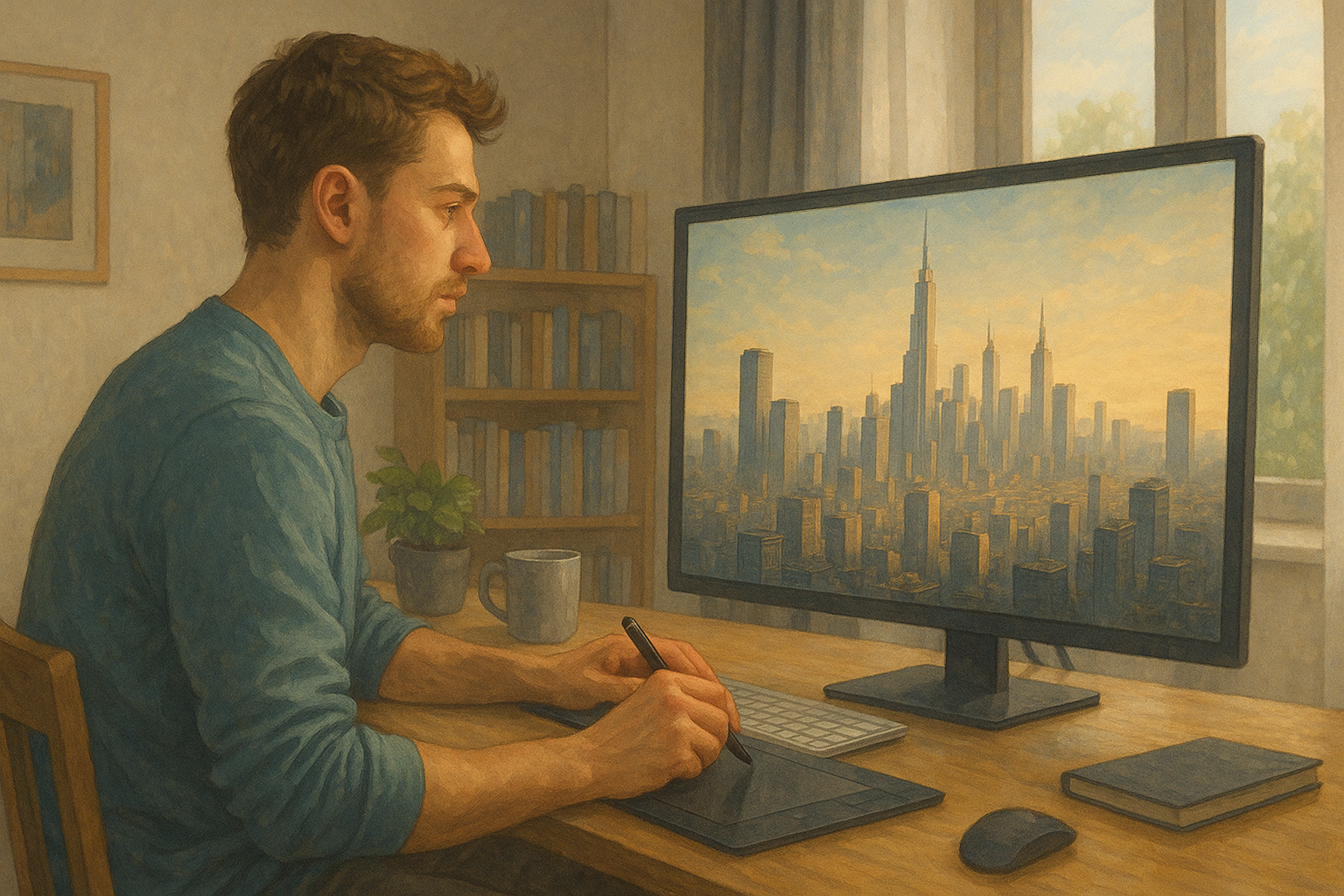AI-Generated Ads Being Used? | 매거진에 참여하세요
AI-Generated Ads Being Used?
#video #advertisin #marketer #AI #casestudie #performanc #strategist #marketing
Are AI-Generated Ads Actually Being Used? Turns Out, Yes—And They Work.
There was a time when making a commercial meant hiring a full production crew, casting actors, renting studio space, and spending weeks
—if not months—on planning, shooting, and editing. That world still exists,
but it’s rapidly being complemented (and in some cases replaced) by something far leaner: AI-powered video production.
Today, all you need is an idea, a laptop, and the right AI tools—and you're ready to launch an ad campaign.
From Studios to Scripts: The AI Ad Revolution Has Begun
Across industries and borders, companies are embracing AI-generated videos not just as a gimmick, but as a serious alternative.
Here are real-world examples showing how businesses—from telecom giants to startups—are moving faster and spending less with AI.

LG U+: “Yes, We Used AI for This Ad.”
South Korea’s LG U+ didn’t just use AI for a commercial—they showcased the entire process on YouTube. The team used:
Midjourney for image generation
Runway Gen-2 for video synthesis
ElevenLabs for realistic voiceovers
The final result? Surprisingly smooth transitions, coherent storytelling, and emotional delivery—all without a single camera or actor on set. Production costs were reportedly cut to just one-tenth of a traditional ad.
Daehong Agency: Building Korea’s First AI Ad Studio
This major advertising agency went even further by establishing the country’s first dedicated AI ad studio.
Their approach isn’t just about plugging text into a tool.
Creative directors write prompts, instantly preview storyboards, and spin them into draft videos—all in-house.
Humans still guide editing and branding, but AI handles the repetitive cycles, dramatically accelerating the creative process.
Dr. Chung’s Food: A Virtual Spokesperson for a Real Product
Their new protein milk ad features a virtual human—entirely generated by AI. Many viewers reportedly assumed it was a real actor.
The ad blended realistic visuals with emotionally resonant storytelling.
The brand also launched a 2-month campaign to broadcast the ad in 600 fitness centers across Seoul, paired with a social media engagement event.
Coign (USA): A 100% AI-Made National TV Ad
U.S.-based credit card startup Coign took it a step further: they created an entire TV commercial using only AI.
No sets, no actors, no film crew—just text prompts and AI engines to generate everything from characters to backgrounds to voices.
The kicker? It was completed in under a day and at just 1% of the usual cost.
Many viewers didn’t even realize it wasn’t traditionally produced.
Microsoft: Quietly Replacing Production With AI
In its 2025 Surface campaign, Microsoft used AI for nearly every visual element. Most of the footage
—including sweeping landscapes and mood shots—was generated, not filmed. Only close-up scenes were real.
The result was a sleek, high-end ad that reportedly saved 90% of time and costs compared to traditional production.
Toys "R" Us: Emotional Storytelling With AI
AI isn't just about cutting costs—it's also tapping into emotion. In one ad,
Toys "R" Us used OpenAI’s Sora to recreate the brand founder’s childhood story.
The AI-generated imagery, characters, and emotional tone were so vivid that the ad felt more like a short documentary.
This wasn’t just nostalgia—it was strategic.
The campaign aimed to revive the brand's emotional appeal and bring in a new generation of parents and kids.
But Does AI Advertising Actually Perform?
One company decided to find out. Creatify, an AI ad automation tool,
ran an A/B test: one traditional influencer-made video vs. one AI-generated version.
The results were clear:
- Cost-per-click (CPC) dropped by 31%
- Conversion rate (CPR) rose by 28%
I
\t’s proof that with the right setup, AI ads can not only match but outperform traditional campaigns in measurable ways.
The Tool Stack Behind AI Ads
Here are some of the most commonly used tools in AI ad production:
- Midjourney – Image generation
- Runway Gen-2 – Turn images into video sequences
- ElevenLabs – Generate lifelike voices
- Sora (OpenAI) – Create cinematic-quality, natural-looking video
- Creatify – Automated ad creation with performance tracking
With these tools, a solo marketer can create, test, and deploy ad content at scale.
Final Thoughts: AI Advertising Is No Longer Experimental
AI ads are no longer just prototypes or PR stunts. They’re live, public, and performing. Marketers now have faster turnaround, lower costs, and more opportunities to test creative ideas without the usual constraints.
Of course, humans are still needed to define the brand voice, develop strategy, and make key decisions. But the power to execute has never been more accessible.
If you're in marketing, it might be time to stop asking “Will AI ads work?” and start asking “How can I use AI to test my next big idea—today?”
Because the next viral campaign might not come from a studio. It might come from your laptop.






